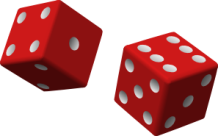 We worry about bacteria, we wash and scrub and avoid the occasion of bacteria, but bacteria are a necessary part of keeping us healthy. We need bacteria for balance in our body. We can’t thrive or even survive without them.
We worry about bacteria, we wash and scrub and avoid the occasion of bacteria, but bacteria are a necessary part of keeping us healthy. We need bacteria for balance in our body. We can’t thrive or even survive without them.
Scientists from the Human Microbiome Project have nearly finished cataloguing the 10,000 microbial species that live in healthy humans. This data will hopefully help in future research to understand how health and disease are correlated with changes in our bacterial makeup. For instance, it is known that illnesses such as Crohn’s disease and irritable bowel syndrome appear to be microbiome-related.
Matt Kwong says in his article for CBC News, Scientists Map Bacteria Living Inside Us: “For a bit of perspective, there are so many non-human microbial cells residing in our two-legged ecosystems that they outnumber our human cells 10 to one. If one were to mass together all the bacteria populating a 150-pound adult, it would weigh about 4.5 pounds.”
We depend on our good bacteria for health and nutrition – it is the bacteria in our gut that helps digest our food to make the nutrients available for us to absorb, and it is the presence and proper density of good bacteria on our skin, in our respiratory, digestive, and urinary mucosa that crowds out pathogenic bacteria and fungi. This is why, when these colonies of healthy bacteria are disturbed by toxins like antibiotics which kill off healthy bacteria in the gut and on the mucus membranes, there can follow many repeating cycles of digestive upset and fungal infections such as candida and pathogenic bacterial infections such as C. difficile.
Most bacteria residing on and in our bodies do not help or harm us. The concern is over the few bacteria that are harmful pathogenic parasites, which cause disease by resisting our bodies’ defences and growing at the expense of the body. These bacteria produce poisonous substances called endotoxins and exotoxins which are responsible for the symptoms that occur with an illness. These harmful bacteria are the targets of advertising campaigns promoting antibacterial cleaning solutions. A much healthier way of cleaning is a good scrubbing with plain soap and water for hands, and a vinegar solution for surfaces.
Holistically though, bacteria are more helpful to us than harmful and we need to allow them their place, even encourage the right ones. For instance, Lactobacillus and Bifidobacterium genera aid your body in digestion. “Good” bacteria, are known as probiotics. This is why your natural health practitioner may recommend that you supplement your diet with some. They are found in fermented foods such as yogurt, kefir, sauerkraut, miso, and natto as well as in capsules that you can buy.
Read more about digestion and probiotics here: http://www.livestrong.com/article/532256-good-bacteria-to-aid-digestion/#ixzz2Pdq8piBZ.
Furthermore, healthy bacteria in the vagina keep away infections and can be encouraged by a diet which includes acidophilous.
Though “good” bacteria are to be encouraged, we need to remember that normal flora bacteria can act as opportunistic pathogens at times of lowered immunity. It is important to take care of yourself, eat well, rest, and exercise in order to maintain a strong immune system and a balanced bacterial environment.
Natural remedies and a homeopathic constitutional treatment can help your system cope with stress and encourage a healthy immune system. And, regular follow-ups with your homeopath can help maintain you in a strong and healthy state.
 Lifestyle changes are a critical component of reducing heart disease risk. That means following a heart-healthy diet (light on red meat, heavy on veggies, nuts, fish and olive oil) and getting regular physical activity. As little as an apple a day, according to Oxford University, will prevent 8500 deaths from heart disease each year year.
Lifestyle changes are a critical component of reducing heart disease risk. That means following a heart-healthy diet (light on red meat, heavy on veggies, nuts, fish and olive oil) and getting regular physical activity. As little as an apple a day, according to Oxford University, will prevent 8500 deaths from heart disease each year year.






